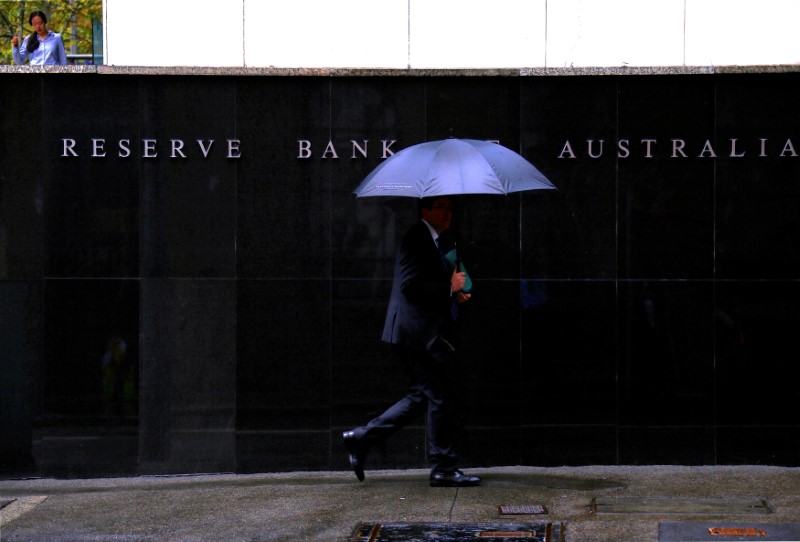By Wayne Cole
SYDNEY (Reuters) - Australia's central bank kept rates at record lows for a 23rd straight month on Tuesday, citing sluggishness in inflation and wages at home and the risk to global growth from trade policy in the United States.
The Reserve Bank of Australia (RBA) last cut rates to 1.50 percent in August 2016, making it easily the longest run without a change since the cash rate was first formalized in 1990.
It shows every sign of extending that run.
"Further progress in reducing unemployment and having inflation return to target is expected, although this progress is likely to be gradual," RBA Governor Philip Lowe said after the bank's monthly policy meeting.
"Gradual" has become an oft repeated word as inflation remains stubbornly below the floor of its 2-3 percent target band and wages fail to revive despite solid job gains.
An added danger has come from U.S. President Donald Trump's use of tariffs against Europe and China, the latter being Australia's single biggest export market.
"One uncertainty regarding the global outlook stems from the direction of international trade policy in the United States," Lowe said, in typically understated fashion.
At recent events, he called a potential trade war the greatest single external threat to Australia's prosperity. Two-way trade accounts for around 45 percent of Australia's annual gross domestic product (GDP).
A DISTANT PROSPECT
A Reuters poll of 34 analysts had found all but one expected the cash rate to be left unchanged this week. An increase was not expected before the third quarter of 2019, compared to mid-year in the previous poll.
Investors seem to agree with the market steadily pushing out the timing of any move. Interbank futures <0#YIB:> have priced in a rate of 1.70 percent for December 2019, implying around an 80 percent chance of a hike.
As recently as February, they had been fully priced for a rate rise in early 2019.
The domestic case for a hike has also been weakened by a sharp cooling in the country's once red-hot housing market. A clamp down by regulators on investment lending and rising funding costs for banks mean house prices nationally are now falling for the first time since 2012.
Sydney prices were down 4.5 percent in June, from a year earlier, according to data out this week from property consultant Core Logic. At the peak of the boom, they had been rising by more than 20 percent annually.
That is potentially a painful hit to wealth given the housing stock is valued at a heady A$6.9 trillion ($5.06 trillion).
"It's consistent with a fading 'household wealth effect' dragging on consumption," warned UBS economist George Tharenou.
"Macroprudential policy is reducing borrowing capacity and
leading to a clear weakening of housing, which we expect to continue ahead."
